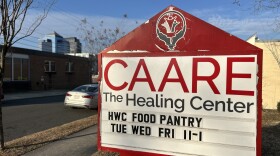Ryan Bethea has a job to make many computer-bound office workers jealous. As an oyster farmer, his work takes him out into the waters of Westmouth Bay just off Harkers Island. Bethea farms on five acres and runs his business, Oysters Carolina, which sells fresh oysters to individuals, group events and one restaurant in Durham.
He works by kayak, paddling out to look for crowding in the oyster cages or damage to the gear. The North Carolina oyster industry has lagged behind other states, but the coast’s estuarine systems make prime habitats for wild and farmed oysters.
Bethea didn’t grow up with an obvious bent for oyster farming. He spent his childhood and teenage years in Durham, where his dad worked as the assistant city manager. He cultivated a passion for law as a teenager, but it did not congeal as he started college. He ended up dropping out of school, traveling and making money by bartending. Bethea learned about the untapped potential for oyster farming in North Carolina from a magazine in 2011, and it sparked an idea — what if he could have a job working in the outdoors that highlighted something unique about the state he loved?
This dream motivated him to return to finish his bachelor’s degree in geography at North Carolina Central University. He then attended the Virginia Institute of Marine Science Oyster Aquaculture Training program and studied oyster genetics to further his technical skill. His oyster farming company became a reality in 2015.
Host Frank Stasio talks with Bethea about his non-linear path to oyster farming, the effects of the coronavirus pandemic and climate change on his business and where his future life goals are taking him.

Interview Highlights
Ryan Bethea on discovering a passion for oyster farming:
I [came] home one night, and there was a Farm Bureau magazine, just kind of a normal publication that most people just throw away. And it was actually turned to an article about oyster farming in North Carolina. … The article talked about how our state is just really poised for this industry to take off. And we just weren't doing it. There was no one that was really interested in going into it. And then I read it, and it just kind of hit me. I even had a hard time sleeping that night. It was something I felt like I was here to do.
On “acting cool” in high school and growing from that:
I had a bad attitude. I thought it was really cool to be able to do something well without working at it. Whether that was scoring high on the test without studying or having success athletically without practicing or without stretching or training — that's what I thought was cool. Looking back on that, that's pretty uncool now, and I'm even still dealing with that now."I read it, and it just kind of hit me. I even had a hard time sleeping that night. It was something I felt like I was here to do."
On what he learned from teaching teaching middle schoolers:
These kids, they can tell if you're real or not. They can tell if you care or you don't care. They can really cut through the B.S. and, like I said, they will expose you. So I thought ... it's time to kind of cut the crap and be as real as I can.
On how hurricanes affect the oyster industry:
Oysters are pretty resilient animals. They live in a salinity range of anywhere from 10 to 28 parts per thousand. To give you an idea, the ocean is 33 to 35 parts per thousand salt, so they have a pretty wide range. But what they aren't very good at is going from, let's say 28 parts per thousand down to 10 parts per thousand in a matter of days — which is what happens when you have heavy rainfall and then flooding, all that fresh water.







